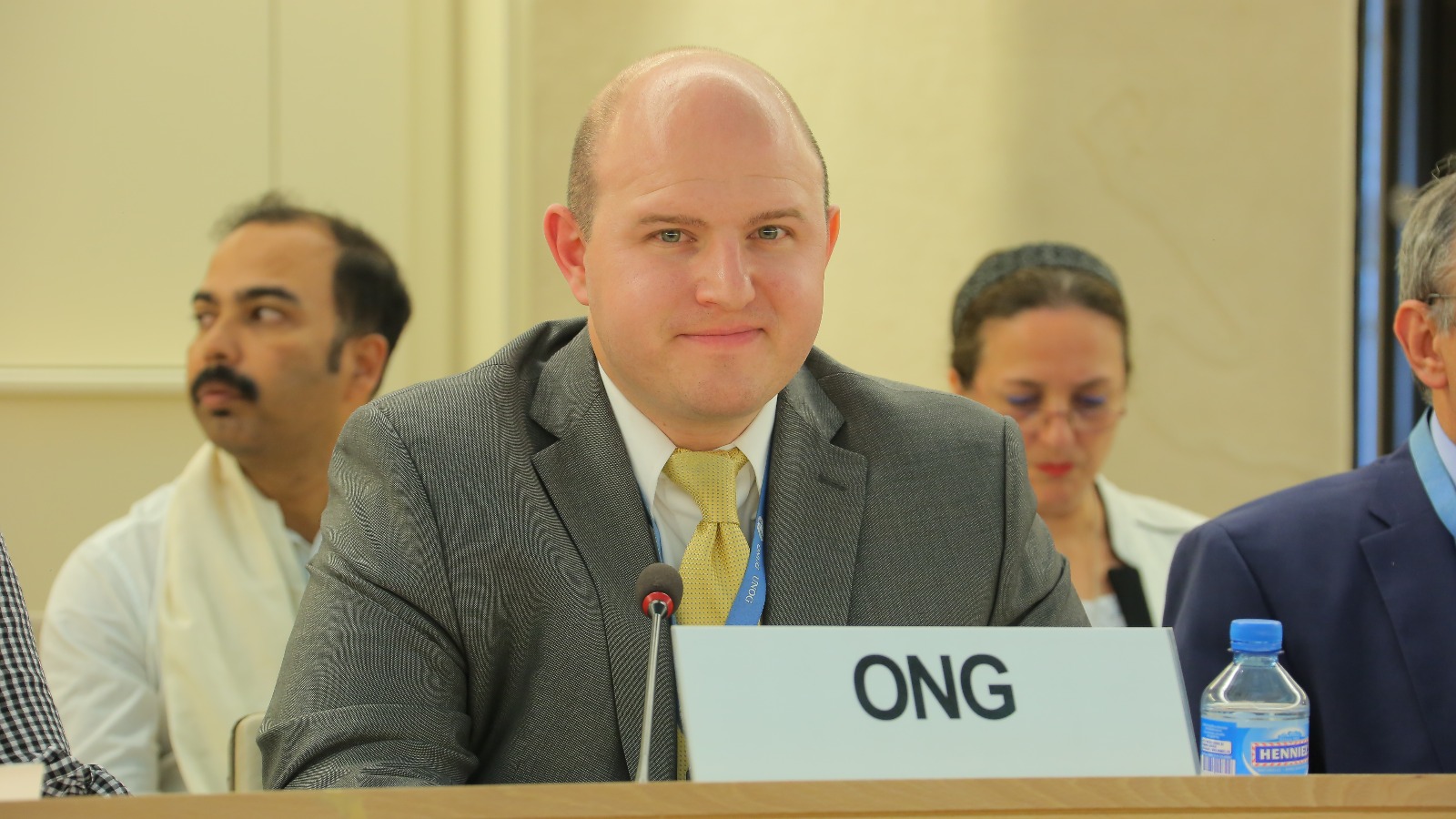On 20 September, at the 36th session of the Human Rights Council, Michael Payne delivered an oral intervention on behalf of Americans for Democracy & Human Rights in Bahrain during the Interactive Dialogue with the Human Rights Council’s Advisory Committee. In his intervention, Payne raised the issue of Bahrain’s reprisals against human rights defenders and civil society activists who have cooperated with international human rights mechanisms and bodies, explicitly noting the cases of Ebtisam al-Saegh, Rihanna al-Mosawi, and Zainab al-Khamees among many others. Please continue reading for the full text of his remarks, or click here for a PDF of his intervention.
Mr. President,
Americans for Democracy & Human Rights in Bahrain welcome this opportunity provide input for the HRC Advisory Committee on efforts to improve the Council. In this regard, we express our concerns over continued reprisals committed against those who cooperate with the Council and its mechanisms. This problem is incredibly pressing and disrupts the important work of this body.
For example, in recent years, the Bahraini government has become one of the most systematic offenders in terms of HRC reprisals, targeting dozens of civil society actors for judicial harassment both before and after Council sessions. Prior to Bahrain’s third Universal Periodic Review cycle this past May, the authorities renewed their campaign of reprisals to prevent engagement with this mechanism, subjecting at least 32 human rights defenders, opposition leaders, and religious figures to criminal summons and travel bans. As a result of this interference, the number of independent Bahraini activists able to leave to attend the UPR dropped from dozens in 2012 to 3 in 2017. Just within the last few weeks, the government has renewed this reprisal campaign, targeting human rights defenders Fatima al-Halwachi and Zainab al-Khamees; opposition leaders of Ebrahim Sharif and Radhi al-Mosawi; activist and torture survivor Rihanna al-Mosawi and her husband; and the father of Ali al-Singace, one of the three individuals put to death in January 2017 after being tortured into falsely confessing to terror crimes.
One of the most extreme reprisal cases is that of human rights defender Ebtisam al-Saegh, who was repeatedly detained and tortured by Bahrain’s intelligence service after returning from the 34th Council session. She is currently held on baseless terror charges stemming from her human rights work.
We therefore request that the HRC Advisory Committee adopt a study on the issue of reprisals over engagement with the Council, and that it determine and publicly submit best practices for addressing these abuses.
Thank you.
Photo by Moosa Mohammed





